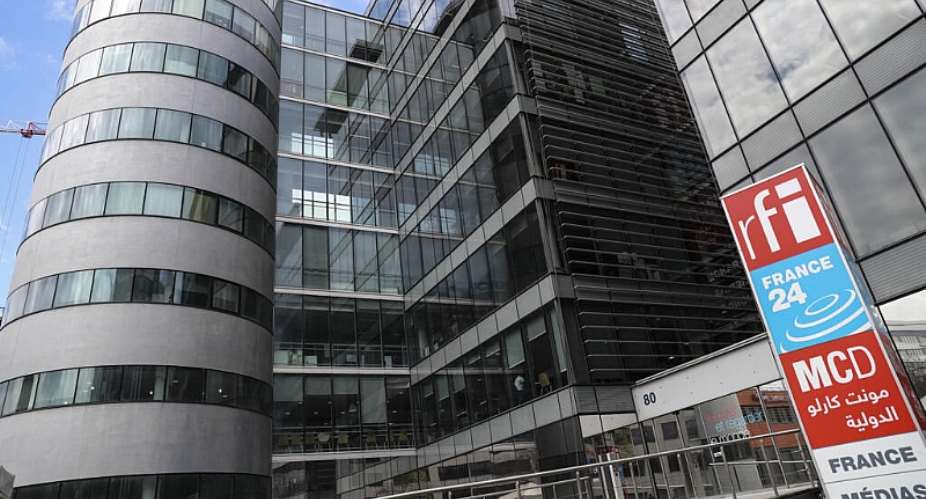Employees across France's massive public broadcasting sector, including RFI, are striking for two days to protest a proposed public media merger put forward by Culture Minister Rachida Dati.
Dati has defended the "ambitious" and "long-awaited" reform – saying it would strengthen the public media industry, which is facing stiff competition from private companies.
The first step would be a transitional phase, with a common holding company for public broadcasting as of 1 January, 2025. A merger would follow a year later.
The bill would provide for the creation of a giant new company called France Médias, with a budget of €4 billion.
It would bring together France Télévisions, Radio France and the National Audiovisual Institute (INA).
Some 16,000 employees would be affected be the change.
It has not yet been decided if France Médias Monde (RFI, France 24, Monte Carlo Doualiya) will be part of the merger plan.
A first reading of the bill by MPs was slated for this Thursday and Friday in the National Assembly, but due to a backlog of other issues it is likely to be postponed until next month.
'Demagogic and dangerous'
As well as cancellations to regular broadcasts, rallies are planned for Thursday near the National Assembly and the Ministry of Culture in Paris.
In a column in daily newspaper Le Monde published on Wednesday, more than 1,100 Radio France employees slammed the project as "demagogic, ineffective and dangerous".
"Our survival is at stake," they wrote.
France Télévisions union representatives said in a press release: "At a time when public broadcasting is fully playing its role facing private media controlled by a handful of billionaires, why involve them in a merger that is complex, anxiety-provoking for employees, and without real editorial objective?”
Dati sought to reassure employees with a message on social media.
"I want to guarantee you not only sustainability but (also) your strength in a world of exacerbated competition between platforms and social networks", she wrote.
"Obviously, we are not going to standardise either professions or activities," she insisted on Wednesday in the Senate during questions to the government.
A previous attempt at a merger had been made by her predecessor Franck Riester but this was shelved due to the Covid pandemic.
The project has also been attempted by previous governments, notably under former president Nicolas Sarkozy.
Political divisions
In terms of political reactions, the project has strongly divided the left and the right.
Far-right National Rally (RN) MPs are globally in favour of a pure and simple privatisation of public broadcasting and support the merger project.
The right-wing parties, like Les Republicains are not against a merger either, but have questioned the feasibility of the timetable.
The far-left France Unbowed (LFI) sees the project as "the culmination of the denigration and weakening" of the public service and an attempt to grab more control by President Emmanuel Macron.
"Returning to the days of the ORTF won't allow us to compete with Netflix," the Greens said.
The ORTF is the structure which brought together French public broadcasting until the 1970s, and whose lack of independence was criticised.
Loss of economic independence
One worry is that the mandatory royalty fees incorporated into the tax system were abandoned by the government in 2022, prompting massive strikes.
"From the moment you no longer have a public broadcaster that is autonomous in its financing, its existence is threatened and we see this phenomenon everywhere," Media historian Alexis Lévrier told RFI – pointing to the example of the BBC in the UK.
"We really have the impression of a return to the 60s and 70s and we know that Emmanuel Macron has this nostalgia for 'Jupiterian' presidents who embodied very strong power, and in particular General de Gaulle."
It would risk the public media potentially having to answer to a future far-right leader, should one come to power.





 Go to court, I cannot retract the truth – Ablakwa replies Freddie Blay
Go to court, I cannot retract the truth – Ablakwa replies Freddie Blay
 Ambulance Trial: Godfrey Dame must heed Judge's advice — Appiah-Kubi
Ambulance Trial: Godfrey Dame must heed Judge's advice — Appiah-Kubi
 Jomoro: Chief urges government to rehabilitate cocoa roads at Tikobo No 2
Jomoro: Chief urges government to rehabilitate cocoa roads at Tikobo No 2
 Ghana marks Eid-ul-Adha
Ghana marks Eid-ul-Adha
 Eid-ul-Adha: Mahama appeals for prayers to win Election 2024
Eid-ul-Adha: Mahama appeals for prayers to win Election 2024
 Take IPAC relationship seriously to avert repetition of voter transfer challenge...
Take IPAC relationship seriously to avert repetition of voter transfer challenge...
 “We've economic challenges, power outages but not consumed” — Afenyi-Dadzie
“We've economic challenges, power outages but not consumed” — Afenyi-Dadzie
 Retract, apologise over Labadi beach front claims — Freddy Blay to Ablakwa, John...
Retract, apologise over Labadi beach front claims — Freddy Blay to Ablakwa, John...
 Ghana bleeding terribly — Mahama reacts to death of abandoned patient
Ghana bleeding terribly — Mahama reacts to death of abandoned patient
 S.Africa's Ramaphosa to announce 'inclusive' coalition cabinet
S.Africa's Ramaphosa to announce 'inclusive' coalition cabinet
